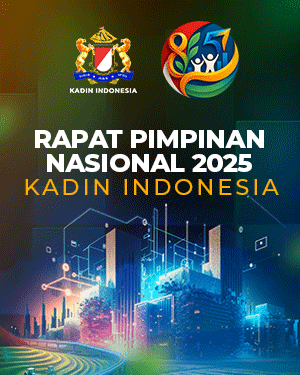
The Indonesian Chamber of Commerce and Industry (Kadin) encourages the realisation of medical device (medical equipment) independence through the implementation of the Domestic Component Level (TKDN) regulation. This became the main discussion in the Focus Group Discussion (FGD) entitled "Building Sustainable Health Care Independence" (14/3/2024).
The fact that during the Covid-19 Pandemic, many new medical equipment industries grew in various countries and after the Covid-19 Pandemic ended, they experienced an oversupply of medical equipment so they had to try to export the excess to various countries. Indonesia, as the fourth largest country in the world with around 270,000,000 population, became one of the most desirable export destinations.
In order not to return to the previous condition, where 95% of Indonesia's medical equipment is imported, Indonesia must maintain this momentum by utilising regulations that can maintain the momentum of Indonesia's independence, one of which is the Minister of Industry Regulation No. 31/2022 which regulates the TKDN of medical equipment.
The TKDN concept is a very strong concept to support the independence of medical equipment, and if used effectively, it will be very good in encouraging the growth of Indonesia's medical equipment independence, therefore the focus of the Kadin FGD in the Health sector in 2024 is to find a formula to maintain the independence of Indonesian medical equipment, especially through strengthening the TKDN concept.
"Through the consistent implementation of TKDN, the ecosystem of the medical device industry will be built automatically, and the multiplier effect in the supply chain of the medical device industry will soon be formed through the formation of supporting industries for the medical device industry," said Chairman of the KADIN Indonesia Medical Devices Standing Committee for Health, Randy H. Teguh.
He said, Regulation of the Minister of Industry Number 31 of 2022 regulates the provisions and procedures for calculating the TKDN value of In Vitro Diagnostic Medical Devices. The regulation combines elements of product development and production costs to form the final TKDN value.
According to Randy, this regulation still needs a lot of input because medical device technology continues to develop and the types are very diverse.
The types range from simple consumable medical products such as wound covers, to high-tech electromedical products such as Magnetic Resonance Imaging (MRI), including software and Internet of Things (IoT)-based products.
Kadin, continued Randy, called for vigilance against a number of indications of abuse of TKDN regulations aimed at winning market entry opportunities, so that the ultimate goal of TKDN to build medical equipment independence and the Indonesian economy is not achieved.
"The TKDN concept is very likely to be used by certain individuals to enter Indonesia and get priority as a domestic product. If this happens, then we have actually experienced pseudo-resiliency because we are still dependent on imported technology, raw materials and components," he said.
Kadin hopes that the government will continue to fight for the independence of medical equipment consistently, because although the business value is much smaller than other sectors, the medical equipment business sector is a very strategic sector because it is directly related to the nation's survival.

National Economy
Regional Economy
National Economy
Regional Economy